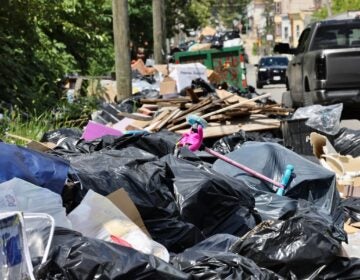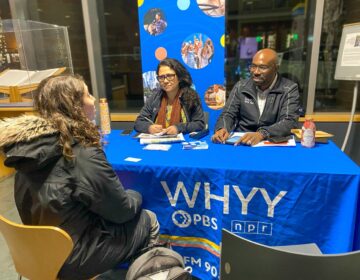Pressure builds as Philly budget deal remains elusive
The city of Philadelphia technically needs to approve a budget by this Thursday. For a number of reasons, that’s not going to happen.
For the spending blueprint to get approved on time, Philadelphia City Council should have introduced a final spending plan last Thursday. But it didn’t. So how far off is the final budget?
Councilman Curtis Jones said the big issue is the Nutter administration’s proposal to reassess all properties in the city to reflect current market values by September.
Nutter is counting on this move, known as the Actual Value Initiative, to bring in $94 million more in revenue. He said that money would just reflect the city catching up on soaring property values in some neighborhoods where owners have been underpaying on taxes for years. Critics call it a back-door tax increase.
If AVI goes through and generates the revenue, Nutter would send that dough along to the cash-strapped city schools.
“I think we all agree we have to do something,” Jones said about the city’s out-of-whack current property assessments. “That is a major step in the right direction, but we are a far cry away from the finish line. There are ways to trip this up. There are problems we have to address and there are players at the state level we have to rely on for many of these measures.”
The state must approve two aspects of the AVI plan before it could go into effect: a “homestead exemption,” which would ease tax sticker shock by exempting a portion of a property’s value from the property tax; and a provision allowing the city to adjust the millage rate without knowing the true assessed value of real estate in the city, since the reassessment won’t be done in time for the city budget vote.
Councilman Bill Green saidbefore he could vote for a budget, he wants assurances that homeowners won’t be asked to fund property tax breaks for businesses. He released an analysis recently that suggested AVI would produce big tax cuts for major commercial property owners.
“Residential owners are going to have a $200 million increase and commercial industrial taxpayers are going to have a $100 million decreas,” Green said. “That seems to me to be an unfair burden shifting and a windfall for commercial property owners that we need to do something about.”
Councilman Bobby Henon and 11 others are joining together to say they want the union jobs such as custodial and bus drivers at the school district preserved, even though the district says contracting them out would save money.
“This is a national issue, systematically you are seeing budgets being balanced on the backs of the workers,” Henon said. “There are in the district 2,700 people who are uncertain what their future brings, 2,700 people who are trying to keep our kids save, 2,700 people who are trying to keep our schools in good and healthy conditions.”
Council President Darrell Clarke said it’s been a rough fight putting together his first spending plan as Council’s leader. He said the effort has been complicated because six members are new and have not been through the process before.
“Seems like we take a step forward and two steps back,” Clarke said, “but at the end of the day there is a deadline and that deadline is quickly approaching.”
Nutter is still optimistic that a budget deal will be struck in time for the new fiscal year’s start on July 1.
“My hope is over the course of the next couple of weeks we’ll put all of those pieces together,” he said. “Our administration, working with City Council, we will put together a package and go from there.”
Jones said the finish line is in sight.
“Close but yet so far. We’re running out of runway.”
WHYY is your source for fact-based, in-depth journalism and information. As a nonprofit organization, we rely on financial support from readers like you. Please give today.




